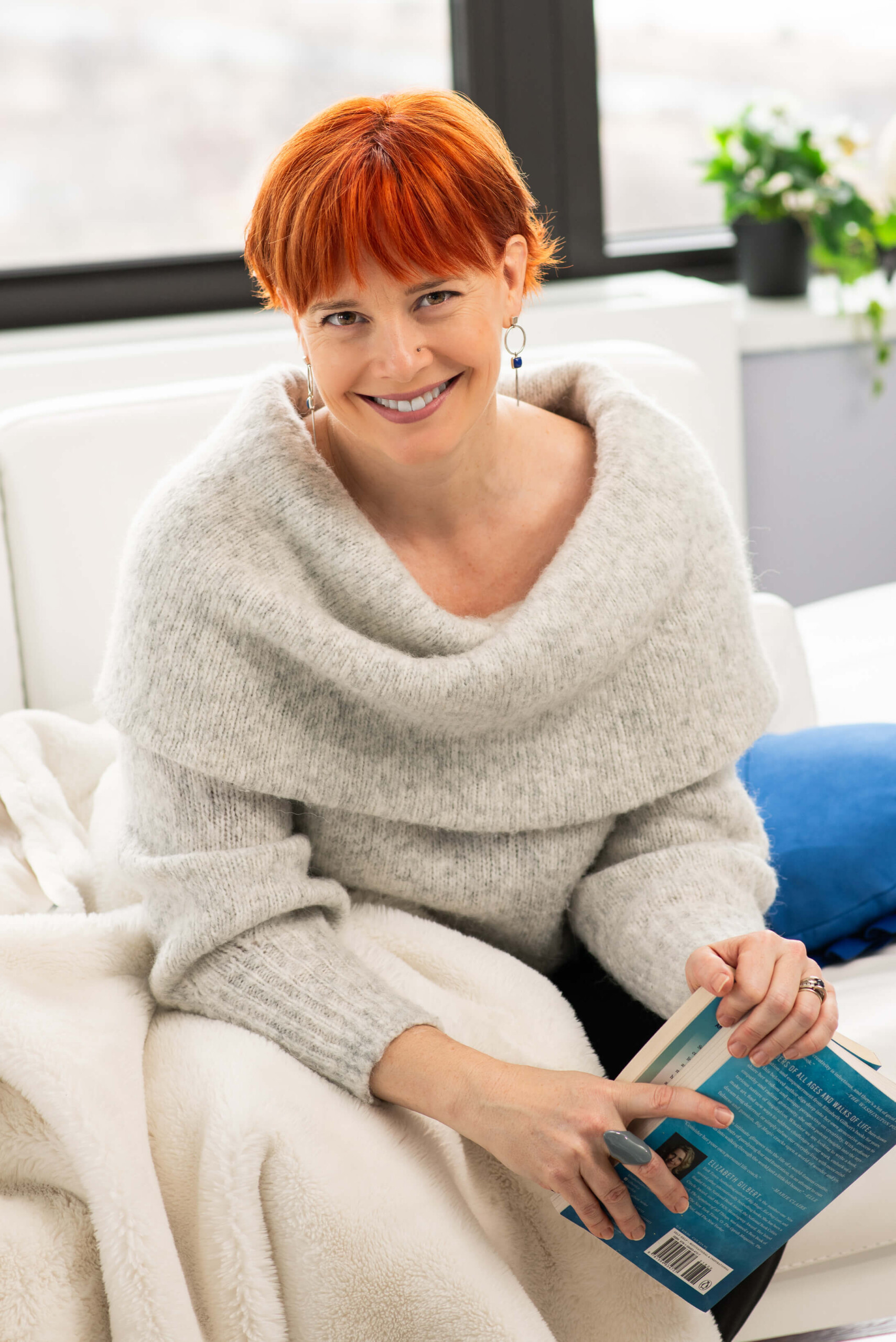Welcome! I’m an educator, author, speaker, and above all, a practiced healer. I’m so glad that you’re here!

Here’s the short bio first if you’re into that sort of thing: the one with all the credentials and accolades that people read when I’m giving a lecture. But if you really want to know about me, read beyond this first paragraph.
MY BIO (AKA. MY CREDS)
Dr. Sina Leslie Smith is a medical doctor and licensed acupuncturist who has trained in homeopathic, integrative, culinary, and functional medicine and has advanced degrees in physiology & biophysics, medical education and acupuncture.
For 4 years she was the Director of Integrative and Culinary Medicine at SIU School of Medicine before returning to private practice as the Medical Director and Founder of Chicago Healing Center. Dr. Smith is a fellow and former board member of the American Academy of Medical Acupuncture, currently serves on the Executive Board and as Chair of the Communications Committee for the Integrative Health Policy Consortium, and is chair of the Illinois State Board for Acupuncture. Her research interests include hospital-based acupuncture, integrative medical education, and the utility of integrative care and acupuncture in a biomedical paradigm.
BUT, THIS IS WHAT I’M REALLY ALL ABOUT
Throughout medical school and surgery training, I was fascinated by the trauma bay and the ICU. Most people don’t think of those places as centers of wholistic care, but in the trauma bay, all kinds of practitioners (phelbotomists, respiratory therapists, trauma surgeons, nursing staff, radiology techs, etc.) come together in a very intense and intentional way with the singular goal of saving someone’s life.
Similarly, in the ICU a team is assembled around the goal of preserving life: the person’s breathing, acid-base balance, cardiovascular parameters and blood chemistry, nutritional needs and digestion, fluid balance and urine output, musculoskeletal system, skin integrity, and mental health are all taken into account and monitored closely.
When a trauma surgeon is running a trauma or caring for a patient in the ICU, they are also doing procedures like putting in central lines for IV fluids, tracheostomies, and feeding tubes at the bedside, but they also might be taking the patient to the OR for bigger surgeries. That is what I wanted to do as a conventional doctor specifically because it was as whole-person oriented as I could imagine.
After 2 masters degrees, 1 fellowship, 4 years of medical school and 3 ¾ years of surgery residency, I developed radial tunnel syndrome. I couldn’t operate due to the arm pain and paralysis, which made it impossible to finish the last 14 month of my surgery training.
I was getting steroid injections while in immobilization splints, taking pain medications but unable to sleep, having PT and all kinds of testing…but nothing was working. In that context, someone suggested I try acupuncture. I did. It blew me away, and I began learning about it, eventually moving to LA and going to acupuncture medical school.
Acupuncture introduced me to a whole different way of thinking about the body.
By the time I got there, I thought I understood anatomy, physiology, and pathology, but it showed me another way of putting the body together. There are organs in traditional Chinese medicine (TCM) that don’t exist in conventional medicine and conventional organs that are largely ignored or conceptualized differently in TCM.
But it wasn’t just the medicine part that fascinated me, it was the bleed over into Chinese Five spice powder used for cooking in the kitchen that has its basis in TCM.
It was the idea that Feng Shui, colors used in Asian holidays, the spoken and written language, food choices, the conception of the influences of weather on health and pathology—all of it was related to the medicine. The medicine could not be separated from the culture or the way that people were dressing, eating, expressing themselves, or living their lives.
From there I got very, very curious about all the other things that I might have missed out on learning while I was studying conventional medicine and began learning integrative medicine. Integrative medicine uses conventional medicine in conjunction with something outside of “regular” medicine: aromatherapy, hypnosis, massage, yoga, colon hydrotherapy, nutraceuticals and supplements, craniosacral therapy, etc. I read about it, took continuing education units about it, and found someone in LA who would perform that therapy for me or let me follow them around while they treated other people.
This exposed me to culinary medicine, which is the study of culinary arts (how to cook and prepare food) + nutrition (how food substances work in the body).
It also exposed me to homeopathy, a whole-body system in which like-treats-like that was a part of the conventional paradigm until pharmaceuticals took over in the early 20th century. I studied both over the course of the ensuing years and continued to take coursework, including the first year of a fellowship, in integrative medicine. Most recently I have added several years of functional medicine training to my toolbox.
During that time, I was in private practice, teaching at various acupuncture and medical schools, then in academic practice, and now back in private practice. For more than the 15 years since leaving surgery, I’ve been on many boards and executive boards of various integrative, medical, or acupuncture-related organizations, devoted many hours to giving talks and lectures including over 75 academic grand rounds and keynote addresses, and taught many workshops, semester-long courses, and classes. I’ve published academic and non-academic articles, am writing two books, and teach at UIC College of Medicine, where I went to medical school.
I’m married, love to travel and dance, and am learning to paint.

